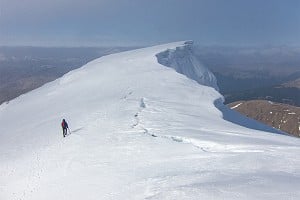
Are you new to hillwalking, keen to develop your skills and confidence, but unsure how best to progress? A course might be your logical next step. You may have heard of Mountain Training in the context of professional awards like the ML, the MIA and other assorted acronyms. But if you're not an outdoor professional then the organisation still has something to offer. Mountain Leader Kate Worthington explains a new personal skills scheme aimed at less experienced walkers.
It's a chicken and egg situation: you want to explore further and higher in our hills and mountains, but feel you need some more experience. But to gain that experience, it's good to explore further and higher in these environments... so how to get started? Maybe you're already researching, planning and enjoying your own walks, be they Sunday pub strolls in Hampshire, County Cork coastal paths, the heathers of Exmoor, peat hag hopping in the Peak District, 'round the lake' in the Lake District, towering slate quarries in Snowdonia, the wild and windy Mourne Mountains or a Munro adventure in Scotland. The British Isles have a wealth of varied, accessible, delightful and intriguing environments in which to go wandering. A bit of knowhow can take you a long way.
Even raw beginners can aspire to explore further and higher. It just takes some time in planning and preparing, and learning a few key skills to keep you happy and safe along the way. This can be a life long process: the natural increase in skills and confidence to boldly go where you might not have gone the year before.
There may be mistakes along the way and some funny tales to be told of late evening wanderings by torch-light (took the longer route by mistake), getting soaked to the skin in summer rain (oops, forgot to check the weather forecast and carry some waterproofs), walking off into the opposite valley by mistake (could have used a map and compass to double check which direction to go at the summit) or missing the last bus (how long was this walk supposed to take?). But these adventures all add up in the 'experience log' and make you a more rounded, inspired, satisfied, healthy and safe hillwalker. And isn't that the ultimate goal? To be truly self reliant, confident and psyched for the next adventure, always aiming that little bit higher and that little bit further? While all the time coming home safe and sound to plan for the next trip of course. Making progress is a fantastic feeling of satisfaction.
"Isn't that the ultimate goal? To be truly self reliant, confident and psyched for the next adventure"
If it's skills you're after then Mountain Training might be a good place to start. This organisation seeks to promote quality education, training and the development of skills for walking, climbing and mountaineering. Mountain Training UK is the mother organisation that brings together the collective efforts of five 'Home Nation Mountain Training Boards' across the UK, who provide and deliver numerous skills and award courses for anyone interested in pursuing training for personal or professional goals. Mountain Training exists to support your journey into the hills and mountains of the UK, and beyond, and 2014 marks its fiftieth anniversary.
In April this year, Mountain Training launched a new personal skills scheme called 'Hill and Mountain Skills' aimed at anyone who would like to increase their current confidence and ability level. The Hill Skills course is an entry level introduction to countryside walking, while Mountain Skills is a progression on from this to tougher and higher things. Regardless of where you live or walk, the Hill or Mountain Skills courses aim to suit the aspirations of less experienced walkers wanting to learn more, head higher and march further with family, friends, the dog or just alone. It's about learning skills and actually using them to make you a happier, safer and more confident walker.
The process is simple: you register for the Scheme with Mountain Training and create a 'Candidate' account for yourself. This gives you access to Mountain Training's resources, information, advice and support. You also gain access to an online Digital Logbook to record your adventures and track your progress (alternatively, try the UKH Logbooks). You will be sent a really useful 'Safety on Mountains' book published by the British Mountaineering Council, packed with facts and useful advice that will also be covered in your skills course. You can search for a course Provider online and choose whether to follow a Hill Skills or Mountain Skills course (or both), depending on your current experience and how high you want to take it.
Both courses run over two days (each Provider runs different dates in different areas) and costs for the courses are payable direct to each Provider. You'll find details of Providers through Mountain Training's website. You can guarantee that each course is run by well experienced and qualified Providers and Tutors, each of whom have been selected by Mountain Training for their capacity to deliver high quality and worthwhile training, that you will enjoy and benefit from.
Unlike some of the other Award courses on offer by Mountain Training, the Hill and Mountain Skills Scheme does not have an official assessment element: you attend, you learn, you complete the course... and receive a Certificate of Attendance afterwards. The bonus of these courses is that they will also be run in some of the most beautiful areas of the UK: National Parks, Areas of Outstanding Natural Beauty and Sites of Special Scientific Interest. Attending a course will give you time out with experienced tutors and other interested folk to help assess where you are currently and where you want to take your next steps.
But what will you learn about? Through mostly practical application, you will cover the following areas of skills and knowledge on both courses: Planning, Walking Skills, Clothing and Equipment, Weather, Navigation, Environmental Knowledge and Hazards and Emergency Procedures. The courses will be outside in the environment you want to explore more, a perfect setting in which to develop confidence and experience with the support of others.
And once you're armed with all this there's the excitement and challenge of what to do next. With a little planning and research, plus newfound skills and knowledge, there are many quiet corners to discover for yourself, and a lifetime of perfect sized adventures to be had in the hills of the British Isles.
Who's Writing?
Kate Worthington is a Summer and Winter Mountain Leader, a committed member of the Mountain Training Association, and Director of mountain activities company RAW Adventures.
Based at the foot of Snowdon, RAW Adventures provide both Hill and Mountain Skills Scheme courses, as well as other mountain training, Duke of Edinburgh training and expeditions, challenge events and popular Climb Snowdon days.
Kate has been exploring the UK hills since the age of four and is particularly fond of the Central Fells in the Lake District after so much time spent there during school holidays.
Find out more about RAW Adventures' Hill and Mountain Skills Courses here
- Desert Island Peaks: Kate Worthington 15 Feb, 2021
- SKILLS: Family Trekking in the French Alps 30 May, 2016

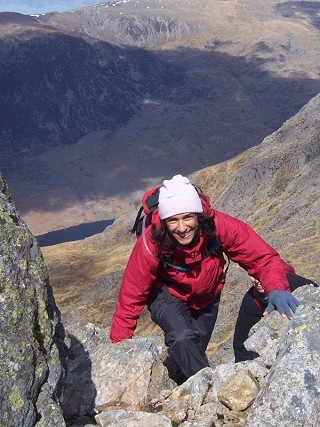
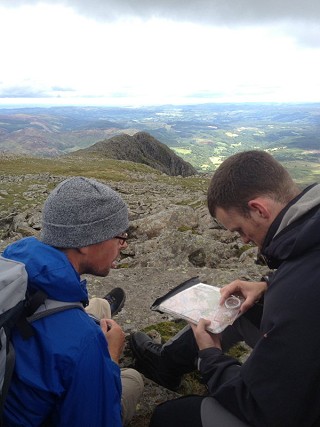
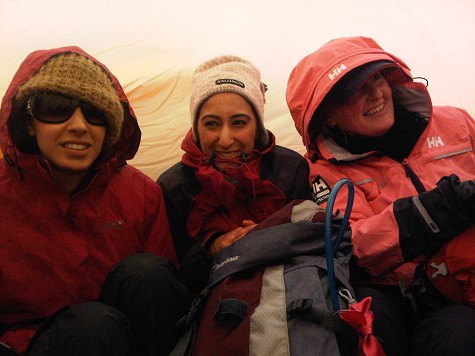
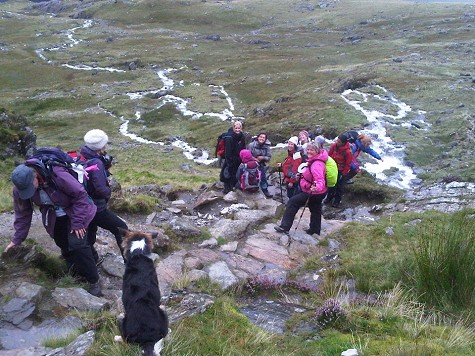
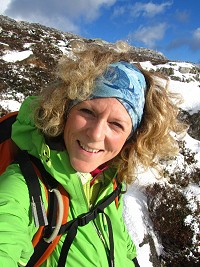
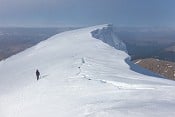
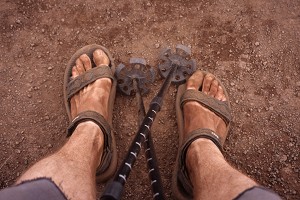
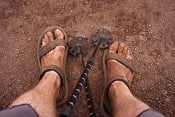
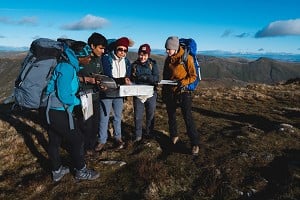
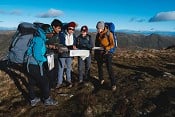
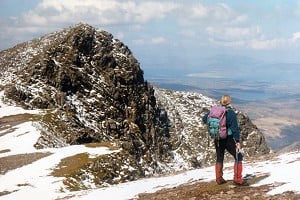
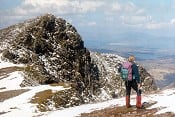


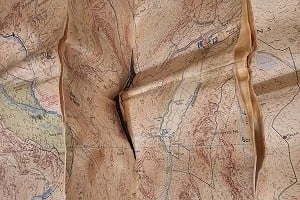
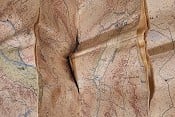
Comments